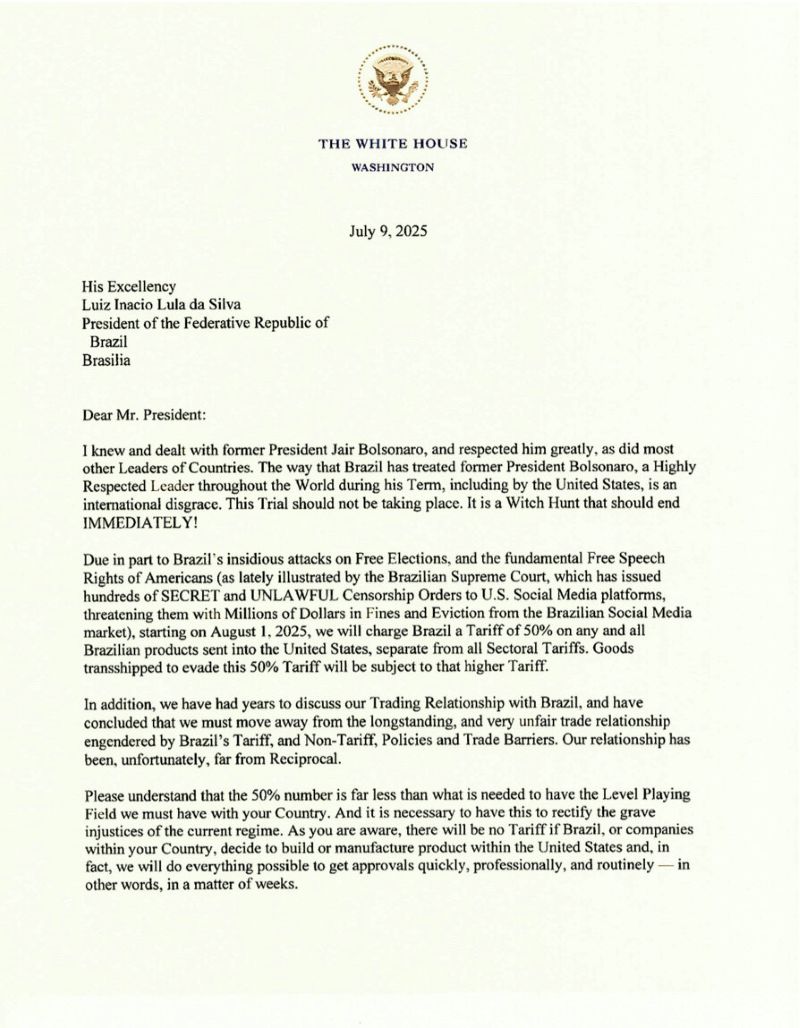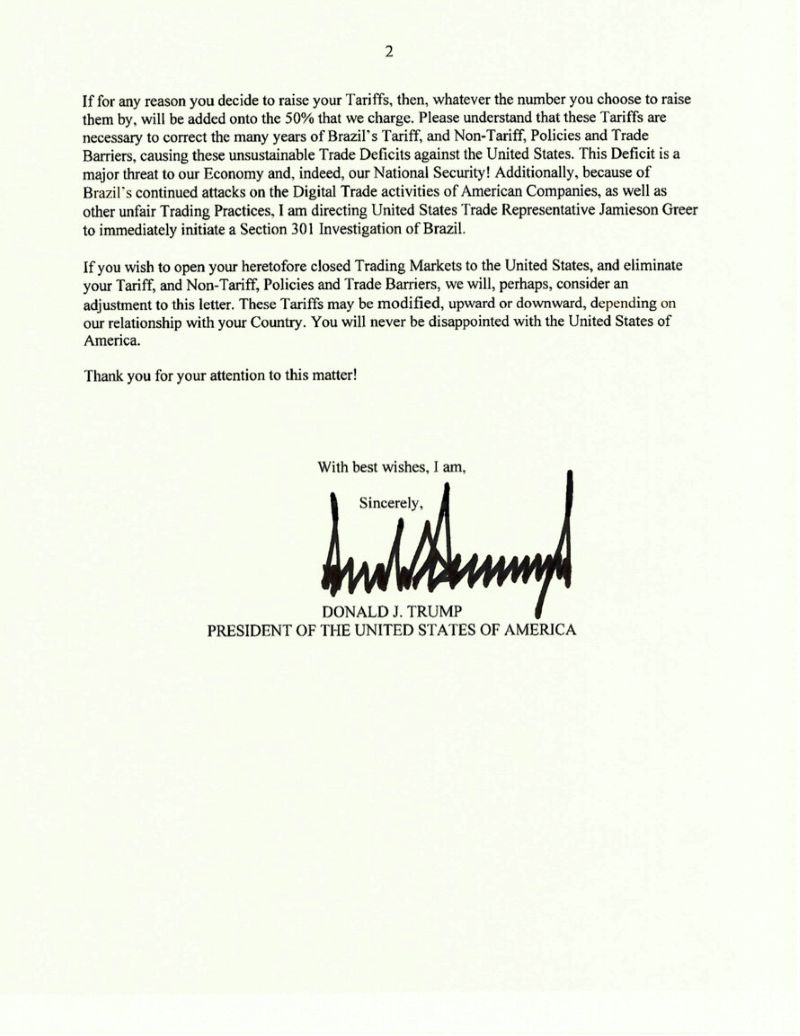In a letter to Brazilian President Luiz Inacio Lula da Silva, Mr. Trump set a new tax rate that will take effect from August 1, much higher than the 10% applied from April 2.
Mr Trump expressed his dissatisfaction with the trial he called a "witch hunt" targeting Brazil's former right-wing president Jair Bolsonaro.
The US president also criticized what he called attacks on elected and free speech rights in Brazil, as well as "secret and illegal censorship orders" targeting US social media platforms.
On that basis, Mr. Trump asked the US Trade Representative Office (USTR) to conduct an investigation under Section 301 of the Trade Act of 1974 - a step that could lead to additional tariffs on Brazilian exports.
The move comes as the Trump administration moves closer to a trade deal with the European Union (EU), the US's largest trading partner.
On the social network Truth Social, Mr. Trump also previously sent a letter announcing the imposition of tariffs from August 1 on goods from 7 trading partners: 20% to the Philippines, 30% to Sri Lanka, Algeria, Iraq and Libya, 25% to Brunei and Moldova. These countries account for a total of less than 15 billion USD in total US imports in 2024.
Meanwhile, Brazil is the 15th largest trading partner of the US with a total two-way turnover of 92 billion USD this year, of which the US recorded a rare surplus of 7.4 billion USD.
However, in his letter to President Lula, Trump still described the trade relationship as very unfair, similar to his previous letters to other countries.


The latest series of tariffs adds to 14 issued earlier in the week, including a 25% tariff on Asian allies such as South Korea and Japan - which is expected to take effect from August 1 if no agreement is reached before then.
Mr. Trump said that trade negotiations with China and the EU are going smoothly. As for the EU, he said it would "may" announce specific tariffs for the bloc within the next two days, adding that the EU has now become more cooperative.
EU trade negotiation chief Maros Sefcovic said the two sides are making progress positively and could reach an agreement in the next few days. He hopes EU negotiators can complete the work soon, especially as the US has extended the tax deadline from July 9 to August 1.
However, Italian Economy Minister Giancarlo Giorgetti warned that the negotiations are still very complicated and could last until the deadline.
Some EU and auto industry sources said the parties are discussing a series of measures to protect the European auto industry, including tax cuts, import quotas and credit mechanisms for the value of EU exports to the US.









